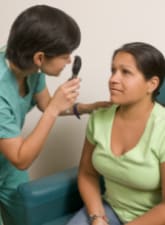Idaho Diabetes Profile
Diagnosed diabetes is prevalent across all 50 states and Washington, DC. People with diabetes are at high risk of heart disease, stroke, and other serious complications, such as kidney failure, blindness, and amputation of a toe, foot, or leg. CDC’s Division of Diabetes Translation (DDT) focuses on preventing type 2 diabetes, reducing diabetes complications and disability, and reducing diabetes-related disparities, which are differences in health across geographic, racial, ethnic, and socioeconomic groups.
View another state
Key Metrics in Idaho
$1M
Fiscal Year 2022 Funding
Nationally: $88.5M
120.6K
Total Diabetes Cases (Prevalence)
Nationally: 28.5M
10.6K
New Diabetes Cases (Incidence)
Nationally: 1.4M
9%
Notified of Prediabetes
Nationally: 8.8%
1.8M
State Population
Nationally: 328.2M
$956M
per year in direct medical costs attributed to diabetes
Nationally: $237B
$314M
per year in indirect costs attributed to diabetes
Nationally: $90B
Does Idaho Have a Diabetes Action Plan?
No
(28 States Nationally)
Idaho Program Activities
National Diabetes Prevention Program (National DPP)
18
CDC-recognized organizations offering the lifestyle change program
(2.1K Nationally)
4
Medicare Diabetes Prevention Program suppliers
(288 Nationally)
3K
Participants enrolled in the National DPP lifestyle change program
(583K Nationally)
Idaho Medicaid program does not have some level of Medicaid coverage for the National DPP lifestyle change program
Diabetes Self-Management Education and Support (DSMES)
21
Recognized/accredited DSMES service providers
(2.1K Nationally)
7.9K
People with diabetes with at least one encounter at a recognized/accredited DSMES service
(929K Nationally)
Idaho Highlights
- The Idaho Department of Health and Welfare worked with the Diabetes Alliance of Idaho to refine the Large Employer Toolkit and engaged various employers including Micron, the City of Pocatello, and Boise State University to offer the National DPP lifestyle change program as a covered benefit.
- With support from the Idaho Department of Health and Welfare, Family Health Services used electronic health records to identify and refer 262 patients with unmanaged diabetes to pharmacists to provide medication therapy management.
Related Resources

